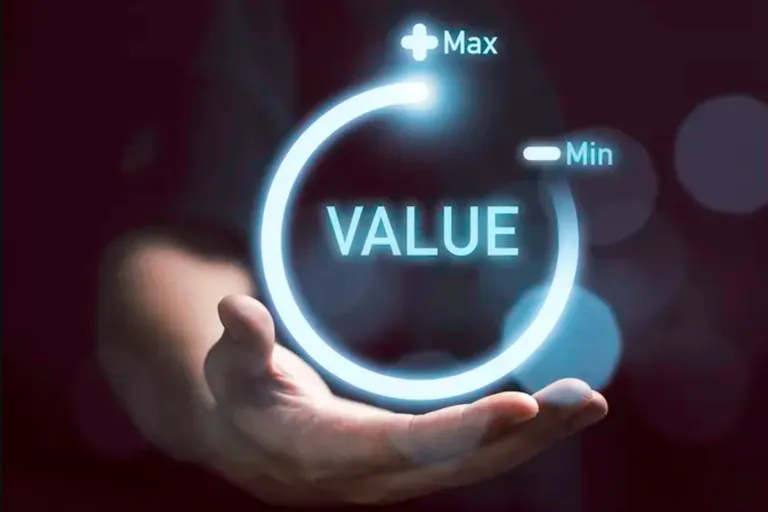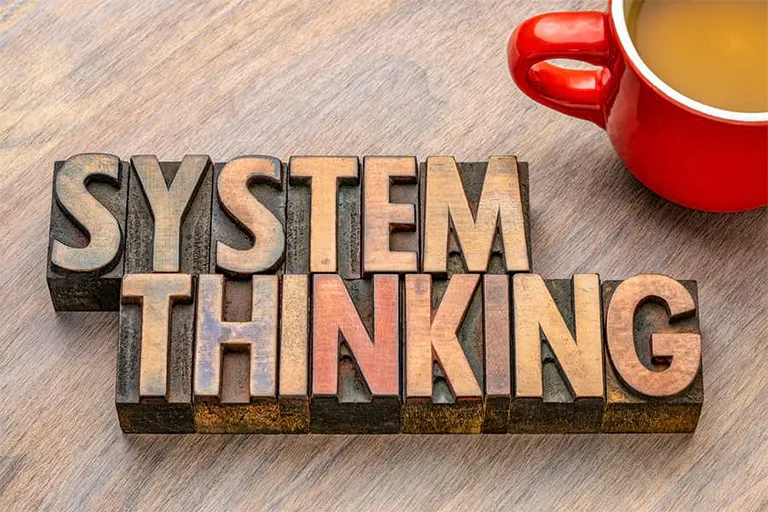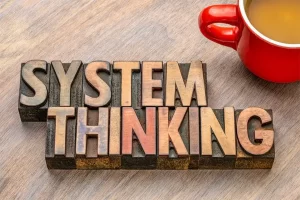Before we examine the discussion of value and value creation in business , I must emphasize that the definition of value in strategy, marketing, entrepreneurship and business model is similar to what we say and hear in everyday conversations about moral values and the hierarchy of values. , it is different.
Literal meaning of value
The word value, with all the diversity in its uses, has a basic concept everywhere in its heart, and that is to value and be valuable .
When we say “honesty is a value to me,” we mean “it is worth so much to me that I am willing to lose other things to preserve it.”
In economics, when we say that the value of this product is one million tomans, it means that it is worth spending one million tomans to get it.
But this discussion of valuing and having value is not so simple and has many details and subtleties that we will discuss further.
Definition of moral value (Moral/Ethical Values)
Moral values are the principles and rules that form the basis and framework of our decisions.
When you are in a situation where you have to choose between several options, you first discard the options that are not compatible with your values, and then choose the best option from what remains.
Of course, our work and life do not always go as well and simply:
It has happened to all of us that in making a decision, each of the upcoming options is somehow in conflict with one of our values.
But because in many cases we have to choose an option in the end, we have no choice but to compare our values with each other and choose the option that does the least harm to our values. For example:
- Is honesty a more important value or keeping the family safe?
- Is job security more important or distance from those who have economic corruption?
- Is it more important to stay in the country or live with less ambiguity?
Many people consider values to be an individual matter. But if you are familiar with systemic thinking, you know that what many of us know as desirable moral values (moral virtues) also contribute to the survival and sustainability of society.
Since this issue should be fully addressed, we will pass it by for now and just remember that moral value is different from economic value and strategy and these concepts are only shared in the word.
Use Value
Application value is another type of value that we all use in our everyday conversations. Here, the key question is how useful a product is for you .
It is clear that Use Value is largely subjective and relative, and everyone has a different assessment of it.
For example, someone may buy a bag or shoe from a very expensive brand and believe that it is worth it. This appreciation can be because of the pleasure he gets from owning that product or a level of quality and design that he believes exists only in that brand, or because he wants to brag to his colleagues with that bag or shoe.
Anyway, all of these are of use value .
Use Value is not unrelated to price; But it is not necessarily affected by it (many factors must be placed next to Use Value in order to finally be able to determine the price).
Exchange Value
Exchange value is what we commonly know and refer to as price.
When we pay a certain amount for a product or exchange it for another product, its exchange value is determined.
Exchange value is not only a function of use value; But the competitive factors of the market also affect it. For example, an increase in supply or a decrease in demand can affect the exchange value of many (not all) products.
Strategic Value
Strategic value is a topic that usually causes disagreement between strategists and accountants.
Anything that has a high exchange value and a high price does not necessarily have a high strategic value.
Suppose a company produces five different products, four of which have a common origin and one is completely different and independent of them.
By the way, the profit margin of this fifth product may be higher than the other four products, and naturally, the accounting unit considers such a product desirable and effective.
In the meantime, a manager who has a strategic view and thinks about the development of the business model , decides to stop the fifth product altogether and focus on the market development of the other four products (the supply of those products in new markets).
Focus is not something that is directly reflected in the financial statements, and market development is not likely to translate into profits in the short term.
So removing this product has removed part of the company’s profit; But at the same time it creates strategic value.
Every resource you have does not necessarily have a strategic value, and maybe not having it and discarding it is more useful than keeping it.
Added value
We have heard the term value-added tax (VAT) so much that the meaning of added value has changed for us and many of us think that the topic of discussion is money that should be paid to the government.
While added value and creation of added value is an economic concept of creation , and of course, like many other economic activities, taxes are imposed for it in different countries.
It will be easier to understand the definition of added value by examining an example:
Example for added value
Suppose someone was able to bake a cake with 10,000 $ of flour, 100 $ of gas, and 70 $ of overhead costs (rent, wages, etc.), which now sells for 10,170 $.
Such a person is also an entrepreneur; But it has not created added value.
Entrepreneur in that he has created a business with a number of job positions. He has even created something that has “exchange value” for others and they are willing to buy the cake for a certain amount.
But added value becomes meaningful when something is added to the value of raw materials and the cost of other production factors.
If such a person can produce a cake with the same raw materials and cost, which is sold for 15,170 $, he has been able to produce 5,000 $ of added value.
Comparing Apple phones with some of its competitors will make the concept of added value clearer for you. We all know that the difference in the price of the iPhone with its competitors is greater than the difference in their production factors and raw materials, with this assumption it can be said that Apple has been able to produce more added value.
Note that Apple and all its competitors in the market have created added value. Because if not, their business would not survive.
Our discussion here refers to the comparison of the amount of added value created.
The concept of value creation in management and business literature
We have seen that the added value from the point of view of economists depends on the difference between the selling price and the price of production factors . This attitude can be called added value from the supplier’s point of view .
But when we talk about value creation in management and business , we don’t necessarily mean added value from the supplier’s point of view . Rather, we often pay attention to the added value from the customer’s or buyer’s point of view :
Added value from the customer’s point of view
The buyer considers a Use Value for your product in his mind and converts that Use Value into Rials and says to himself: If this product is X Rials, it is worth it to me.
To make the definition clearer, economists say: suppose there is only one supplier and there is no competition. In this case, this mental price of the customer is called Total Monetary Value or TMV .
As a rule, the customer will never pay more than this amount (no one gives something more valuable to get something less valuable); So in practice the customer buys your product either exactly at the TMV price or less.
The more you sell your product to the customer for less than the price he thinks it is worth, the more added value you have created (economists call this type of added value Consumer Surplus).
Any earning does not mean creating value.
Any method of earning money does not necessarily mean creating value. The fact that a person receives money from a real or legal person in any possible way and says: If my work is not valuable, they will not give me money, it cannot mean value creation.
Let’s review a simple example:
Consider a friend of yours who has many government and private connections.
It is natural that it may come to an end, it can generate good income by brokering and connecting one to the other and getting a project from a certain organization for this company and hiring this person in that company and getting funding for that organization from this bank and… slow
It is also clear that he can earn good money by receiving various points (either in the form of non-cash gifts or in the form of cash bonuses, commissions, fees, bribes, and whatever else you want to call it).
Such people are considered a redundant link in the relationship chain and must be constantly careful that the buyer or seller or the bank representative or his acquaintance in some organization do not bypass him and do not remove him in future transactions.
In describing such people, we can say that they have income; But they have no business.
In the end, after discussing the types of value, taking into account that you know the buts and ifs well, it is appropriate to summarize the concept of value creation in one sentence for you.
“Value creation means that with the cost that the customer pays before, he has met his need at a better level or that he has met the same need at a lower cost”
The difference between profit tax and value added tax
The concept of economic added value is largely similar to profit, that is, the difference between the price of the product and the sum of costs.
We know that governments also collect taxes on corporate profits. So why do the policy makers of many countries go for value added tax? What is the difference between these?
The answer to this question can be very long.
But the most important point is that the profits of companies are extracted based on their financial statements, and the way accounts are set up and possibly accounts can easily make companies appear unprofitable.
But VAT is charged directly on the sales invoice of each product, and it’s a little harder for companies to avoid it.
Of course, keep in mind that, for example, if the government collects tax on the sales invoice from the flour supplier and takes a percentage of the sale from the pastry seller, the flour tax has been calculated twice.
For this reason, governments calculate the added value paid and received and take the difference from companies.
In general, in this way, much more and more accurate information will be provided to the government and it will be possible to make more accurate policies in different segments of the industry. For example, by exempting some segments from VAT until announcing variable tax rates or using other tools.
Finally, I want you to think about all the money you spent yesterday and today. In your opinion, which producer of goods or services created the highest percentage of added value for himself? To what extent do you consider that way of creating added value sustainable for him?
Please share your thoughts with us and provide your personal evaluations.













